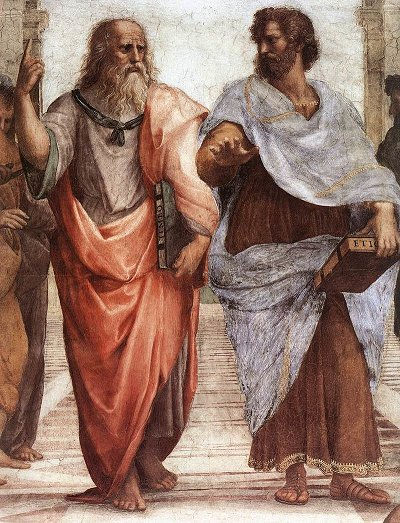Mystique of Nous: Awareness & Perception
- Sylvia Rose

- Jul 21, 2024
- 3 min read
Nous is a concept from classical philosophy, equated to intellect or intelligence, and the area of the human mind necessary for understanding what's true or real. It's the animate, flowing invisible thought, reason and awareness.

Described as equivalent to perception, nous works within the mind. It can be called the Mind's Eye and the state of intuitive awareness. In colloquial English, nous also denotes "good sense", similar to the meaning it has in ancient Greece.
The nous is comparable to the modern concept of intuition. In Aristotle's philosophy, which influences later concepts, nous is carefully distinguished from sense perception, imagination, and reason, although these terms are related.

Earlier philosophers, whose works are mostly lost, are also credited with using the term nous. In his writings, Plato employs the term nous in ways typical in ancient Greek society, often referring to "good sense" or "awareness".
In some Platonic dialogues it's described in a higher sense. In his Philebus 28c he has Socrates say "all philosophers agree - whereby they really exalt themselves - that mind (nous) is king of heaven and earth. Perhaps they are right."

The ensuing discussion "confirms the opinions of those who declare of old the mind (nous) always rules the universe". Plato contends true knowledge can't be attained through sense perception, which creates only opinion.
According to Plato's more philosophical characters, the direct perception of truth by the mind, akin to the ways in which gods and daimons perceive, is essential. To truly comprehend, the mind must perceive unchanging entities. He calls these "forms" or "ideas."

Aristotle
Similar to Plato, Aristotle associates nous with logos (reason) as a distinctive human trait. However, he makes a clear distinction between nous and logos, thereby separating the ability to establish definitions from the capacity to utilize them for reasoning.
Aristotle divides the soul (psychē) into two components: one possessing reason and the other lacking it. He further divides the rational part into the lower reasoning (logistikos) aspect and the higher contemplative "knowing" (epistēmonikos) part, which reflects on general principles.

Aristotle asserts nous serves as the origin of fundamental principles or sources (archai) of definitions, developing naturally as individuals accumulate experience. He elucidates this concept by comparing it with the four other truth-revealing capacities of the soul.
These are
technical expertise (technē)
logically derived knowledge (epistēmē)
practical wisdom (phronēsis)
theoretical wisdom (sophia), defined by Aristotle as the fusion of nous and epistēmē.

All these capacities, except nous, are categorized as forms of reason (logos). In the Aristotelian framework, the concept of nous refers to the fundamental comprehension or awareness enabling humans to think rationally.
Aristotle distinguishes this from processing of sensory information, including imagination and memory, of which other animals are capable. According to Aristotle, the discussion of nous in human minds involves establishment of consistent definitions which can be communicated.

It also includes the debate on whether individuals must inherently grasp universal categories logically. Classical and medieval philosophy consider individual nous may require spiritual and divine help.
This perspective also suggests human understanding or nous is somehow derived from a cosmic nous, which is not merely a passive recipient of order but a creator of it. In the 20th century the idea arises in studies of depth psychology and the collective unconscious.

Non-Fiction Books:
Fiction Books:
READ: Cult of the Fire God - Bronze Age Quest Adventure
READ: Lora Ley Adventures - Germanic Mythology Fiction Series
READ: Reiker For Hire - Victorian Detective Murder Mysteries


